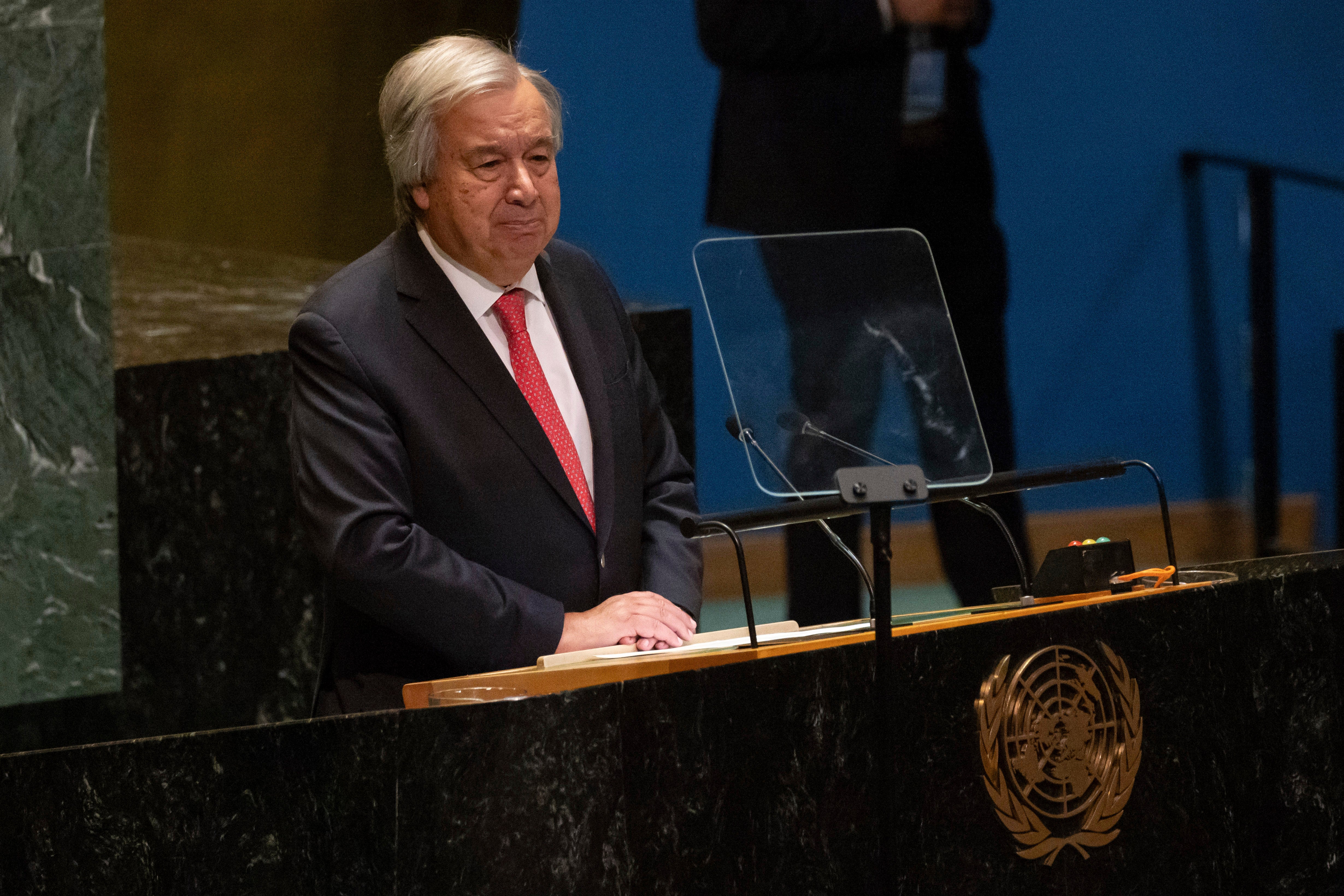UN chief urges divided nations to approve blueprint to address global challenges from climate to AI
The United Nations chief is urging the world’s divided nations to compromise and approve a blueprint to address global challenges from conflicts and climate change to artificial intelligence and reforming the U.N. and global financial institutions

Your support helps us to tell the story
From reproductive rights to climate change to Big Tech, The Independent is on the ground when the story is developing. Whether it's investigating the financials of Elon Musk's pro-Trump PAC or producing our latest documentary, 'The A Word', which shines a light on the American women fighting for reproductive rights, we know how important it is to parse out the facts from the messaging.
At such a critical moment in US history, we need reporters on the ground. Your donation allows us to keep sending journalists to speak to both sides of the story.
The Independent is trusted by Americans across the entire political spectrum. And unlike many other quality news outlets, we choose not to lock Americans out of our reporting and analysis with paywalls. We believe quality journalism should be available to everyone, paid for by those who can afford it.
Your support makes all the difference.The United Nations chief urged the world’s divided nations on Wednesday to compromise and approve a blueprint to address global challenges from conflicts and climate change to artificial intelligence and reforming the U.N. and global financial institutions.
Secretary-General Antonio Guterres told reporters that discussions on the “Pact of the Future” are in their final stretch and failure to reach the required consensus among all 193 U.N. member nations “would be tragic.”
A year ago, Guterres sounded an alarm about the survival of humanity and the planet and summoned world leaders to a Summit of the Future at their global gathering this year to unite and take action to reform the U.N. and other institutions established after World War II and address new global threats. It is taking place Sunday and Monday, just before Tuesday's start of the annual high-level meeting at the U.N. General Assembly.
Negotiations on the 30-page pact, now in its fourth revision, have been taking place for months, and in recent interviews and at Wednesday’s press conference the secretary-general has faced questions about its lack of vision, and what is different from U.N. documents adopted in recent years that haven’t been implemented.
“It’s very simple,” the U.N. chief replied.
All the previous “extraordinary, important declarations” were about what is needed to meet the challenges of the 21st century, he said. The Summit of the Future is about implementing those challenges, which requires reform of global institutions established after World War II including the United Nations.
Guterres stressed that in every area — from climate to AI — “there is a serious problem of governance,” and that’s what the Summit of the Future is about.
The draft Pact of the Future says world leaders are gathering “at a time of profound global transformation,” and it warns of “rising catastrophic and existential risks” that could tip people everywhere “into a future of persistent crisis and breakdown.”
But the draft says leaders are coming to the U.N. “to protect the needs and interests of present and future generations through actions in the Pact for the Future.”
It includes 51 actions on issues including eradicating poverty, combating climate change, achieving gender equality, promoting peace and protecting civilians, and reinvigorating the multilateral system to “seize the opportunities of today and tomorrow.”
Guterres pointed to “potential breakthroughs” in the pact including “the strongest language on Security Council reform in a generation,” and the most concrete steps to enlarging the powerful 15-member body since 1963.
He also cited the first measures to govern new technologies including Artificial Intelligence, a “major advance” in reforming international financial institutions, and a commitment to multiply resources for developing countries to meet U.N. development goals by 2030.
Urging member states to get the Pact of the Future “over the finish line,” Guterres said, “We can’t create a future fit for our grandchildren with systems built for our grandparents.”
U.S. Ambassador Linda Thomas-Greenfield told reporters Tuesday that a priority for the Biden administration at this year’s Summit of the Future is “to create a more inclusive and effective international system.”
She said the Group of 77 which now represents 134 developing countries at the U.N., the 27-member European Union and the United States all agreed to the fourth revision of the Pact of the Future.
But the U.S. ambassador said Russia objected to about 15 different issues, Saudi Arabia had problems with the climate language, and other countries objected to the language on reforming the international financial institutions including the World Bank and International Monetary Fund..
“I do think the Summit of the Future will make a difference,” Thomas-Greenfield said. “There are still some major differences. … But I am still hopeful that we will get there.”